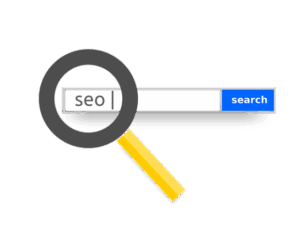Master Internet Marketing Strategies for Online Success

Internet marketing leverages digital platforms for targeted advertising, using data analytics for pr…….
In today’s interconnected world, digital marketing has emerged as a powerful force, transforming the way businesses connect with their customers. This article aims to offer an in-depth exploration of digital marketing, its various facets, global reach, and profound impact on industries worldwide. By delving into this dynamic field, readers will gain valuable insights into the strategies, trends, and innovations that define effective digital marketing practices.
Digital marketing refers to the promotional strategies and tactics employed to engage and convert potential customers through digital channels and technologies. It encompasses a wide range of activities, including search engine optimization (SEO), content creation, social media marketing, email campaigns, mobile advertising, and more. The core components include:
Digital marketing has evolved significantly over the years, driven by technological advancements and changing consumer behaviors. Its roots can be traced back to the early days of the internet when businesses started using email for marketing communication. As the web expanded, so did digital marketing strategies:
Digital marketing’s impact is felt across industries and regions worldwide, but its implementation varies due to cultural differences, infrastructure, and digital literacy levels. Here’s a global overview:
| Region | Digital Marketing Penetration (2022) | Key Trends |
|---|---|---|
| North America | High (85%) | Personalization, AI-driven marketing, omnichannel strategies |
| Europe | Moderate to High (70-80%) | Data privacy regulations, sustainable marketing practices |
| Asia Pacific | Rapid Growth (over 90% in some countries) | Mobile-first approach, social commerce, influencer marketing |
| Middle East & Africa | Growing (50-60%) | Increasing internet penetration, e-commerce adoption |
Digital marketing has become a significant driver of economic growth, contributing to the success of numerous industries:
Businesses across sectors are investing heavily in digital marketing:
Measuring the return on investment (ROI) in digital marketing can be complex due to its multi-channel nature. Marketers use various metrics like:
Deeply understanding the target audience is crucial for successful digital marketing. Marketers should create buyer personas, outlining demographics, behaviors, and preferences. This knowledge helps tailor content and campaigns to resonate with specific customer segments.
Content is the backbone of digital marketing. Creating valuable, relevant, and engaging content builds brand authority and attracts the target audience. Content formats include blogs, videos, podcasts, infographics, and more.
SEO remains a critical component of digital marketing. Optimizing website content, structure, and metadata ensures higher visibility on search engines like Google. Regular keyword research and analysis are essential to stay ahead of algorithm updates.
Social media platforms offer immense opportunities for brand building and customer engagement. Marketers should:
Email marketing remains a powerful tool for nurturing leads and retaining customers. Marketers should:
With the majority of users accessing the internet via mobile devices, mobile marketing is essential. Strategies include:
As technology advances, digital marketing will continue evolving, presenting new opportunities and challenges:
Digital marketing is a dynamic field that continues to shape global business strategies. By understanding its core components, adapting to regional differences, and staying abreast of emerging trends, marketers can create effective campaigns that drive engagement, conversions, and growth. As technology advances, digital marketing will remain an essential driver of success in the digital age.

Internet marketing leverages digital platforms for targeted advertising, using data analytics for pr…….

In a competitive digital marketing landscape, content marketing is key to engaging audiences and bui…….

Content marketing is a powerful internet strategy creating and sharing valuable content to attract a…….

Digital marketing success relies on integrated strategies: SEM for targeted audience reach, SEO for…….

Web marketing success relies on SEO and Influencer Marketing for audience engagement. Targeted digit…….

PPC marketing, a versatile digital strategy, empowers businesses to precisely target audiences acros…….

Internet marketing is a dynamic, global strategy combining strategic planning, creative content, and…….